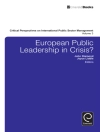This is a comprehensive analysis of three decades of neoliberal policies in Chile, from the Pinochet dictatorship until today.
Chile is often described as a ‘model’ of neoliberal development policy. Marcus Taylor questions this description. Examining the contradictions of neoliberlism, he demonstrates how it has created a society that is deeply ridden with inequalities.
Taylor shows how the tensions that arose from this social inequality led to the emergence of a ‘Third Way’ neoliberalism in the post-dictatorship period. Taylor argues that this new development paradigm has failed. This is a result of the inability of ‘Third Way’ neoliberalism to transform social relationships and institutions.
The nature of this failure affects the direction of popular movements for social change in Latin America during a time of renewed social and political upheaval.
Tabla de materias
Acknowledgements
Introduction. Neoliberalism and Social Transformation
1. The Rise and Crisis of the Chilean National-Developmentalist State
2. Chicago to the Rescue – The Emergence of Neoliberalism in Chile
3. Neoliberalism and Creative Destruction, 1973-1989
4. From Retrenchment to the ‘Seven Modernisations’ – The Great Transformation of Welfare Institutions
5. Towards a Third Way? – Politics and Policy in Post-Dictatorship Chile
6. Production, Power and Exports – The Political Economy of Post-Dictatorship Chile
7. Labour Institutions and the Politics of Flexibilisation
8. Growth with Equity? Social Policy and Anti-Poverty Programmes, 1990-2003
9. The Uncertain Future of Neoliberalism
References
Index
=
Sobre el autor
Marcus Taylor is an Assistant Professor in the International Development Studies program at Queen’s University, Kingston, Canada. He is the author of From Pinochet to the ‘Third Way’: Neoliberalism and Social Transformation in Chile (Pluto, 2006). Writing on development studies and contemporary Latin America, his articles have appeared in journals such as Latin American Perspectives, Third World Quarterly, Historical Materialism, and Global Social Policy.












